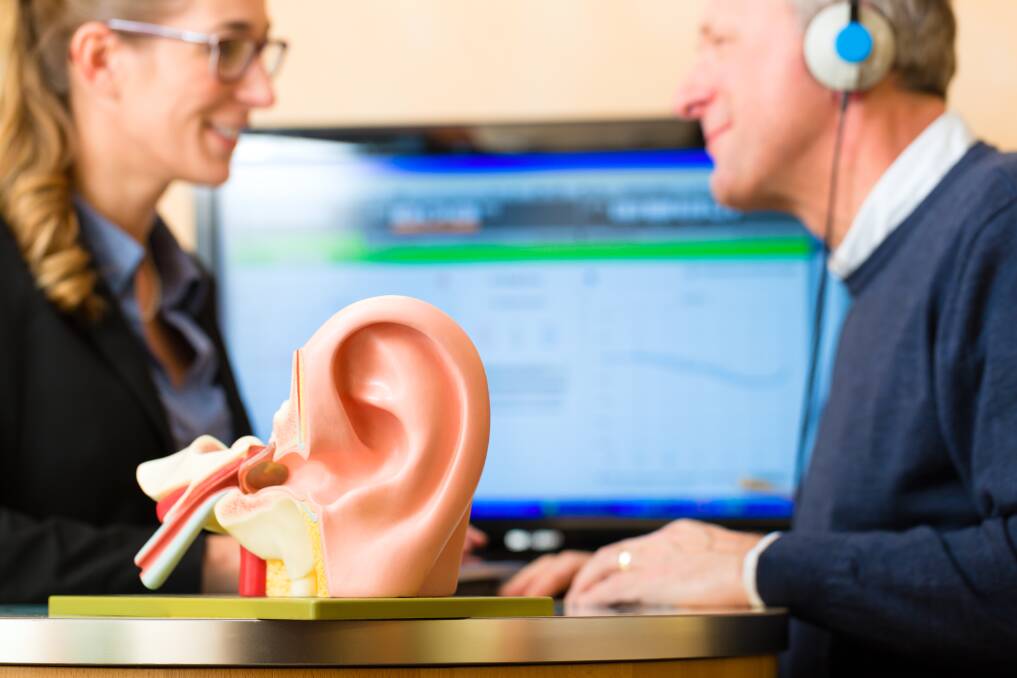Understanding age-related hearing loss: What every senior should know

This is branded content.
Does it seem like people are mumbling more than they used to? Or perhaps you find yourself turning up the volume on your TV louder than before.
You're not alone. Many seniors experience these subtle changes as they age. However, they often dismiss these as trivial annoyances, not realising they might be the first signs of a common age-related condition: hearing loss.
If these scenarios sound familiar, it's crucial to understand that they might indicate a deeper issue: age-related hearing loss, medically known as presbycusis.
Age-related hearing loss can creep up on you, making the condition easy to overlook until it starts significantly impacting your life. It's vital to comprehend the causes, recognise the early signs, and understand how to manage them effectively. It's interesting to note that hearing loss causes aren't restricted to age alone. Factors like prolonged exposure to loud noises, certain medications, and existing health conditions can also play a role in accelerating the onset of this condition.
Now that we've set the stage, let's delve deeper into the intricacies of age-related hearing loss, and provide you with the knowledge every senior should have to deal with this silent yet profound change.
Recognising the symptoms
Let's first tackle how to recognise the signs of age-related hearing loss. This usually begins with difficulty hearing high-frequency sounds, like children's voices or a doorbell ringing. You might recognise some of the following scenarios in your daily life:
- Frequently asking people to repeat themselves during conversations
- Enduring an incessant buzzing or ringing sensation in your ears, a symptom referred to as tinnitus
- Amplifying the volume on your television or radio to levels others find too loud
- Difficulty understanding speech if background noise is present
- Perceiving that others seem to mumble
- Difficulty following conversations when two or more people are talking simultaneously
If these scenarios are becoming common in your daily life, it might be time to consider the underlying causes or consult a professional early on for a hearing test.
Understanding the culprits
Now that we understand how to recognise symptoms of hearing loss, let's now examine its causes and risk factors. Age-related hearing loss, or presbycusis, occurs as the miniature hair cells in the inner ear, responsible for transmitting sound signals to the brain, start to deteriorate - a common occurrence in ageing individuals. According to Johns Hopkins Medicine, one in three adults over the age of 65 has a certain degree of hearing loss. Here are some factors that can contribute to hearing loss:
- Exposure to loud noises over a long period can accelerate this process.
- Certain medications are ototoxic, meaning they can damage your hearing.
- Certain health conditions, like high blood pressure or diabetes, can also hasten hearing loss.
- The buildup of earwax or fluid can block out sounds carried from the eardrum to the inner ear.
- Your eardrum may rupture due to pressure changes, infections, or the insertion of objects into the ear, which may also lead to hearing loss.
By understanding these causes, we can better appreciate the critical impact this condition can have on daily life.
Impacts on day-to-day life
Beyond the struggle to hear, hearing loss can significantly impact daily life, affecting communication and leading to frustration, misunderstandings, and social isolation. As we delve deeper into the effects of hearing loss, it's crucial to acknowledge how it can alter normal activities. Here are some examples:
- Steering clear of social situations due to the anxiety of not being able to participate in conversations
- Feeling disconnected from friends and family due to communication barriers
- Struggling with feelings of loneliness or depression due to social isolation
- Increased likelihood of falls, affecting personal safety, especially while driving
These experiences can be quite challenging, but fortunately, there are various treatment options available to mitigate the impacts of hearing loss.
Navigating treatment options
Now that we've acknowledged the impacts, let's discuss potential remedies. Various treatments can help manage age-related hearing loss, ensuring it doesn't hamper your quality of life. These include the following:
- Assistive listening devices, including telephone and cell phone amplifying devices, apps for smartphones or tablets, and even closed-circuit systems (or hearing loop systems) found in certain public spaces
- Hearing aids, which work by amplifying sounds to make them easier to hear
- Cochlear implants, a surgical option for severe hearing loss that directly stimulates the auditory nerve
While these treatments can be effective, especially hearing aids, it's also important to acknowledge preventative measures to slow the progression of hearing loss.
Taking preventative measures
Beyond treatments, preventative measures can help slow the progression of hearing loss. Though we cannot entirely halt the process, we can certainly slow its progress with the following steps:
- Try to minimise your contact with loud environments, particularly over long durations.
- Stick to a healthy lifestyle, including a balanced diet and regular exercise.
- Undergo regular hearing check ups to catch early signs of hearing loss.
- Wear earplugs or special fluid-filled ear muffs to help prevent further damage to your hearing.
By integrating these steps into your daily routine, you can help maintain your hearing health for as long as possible.
Concluding thoughts
Understanding age-related hearing loss can be your first line of defence in maintaining your quality of life. By recognising the symptoms, knowing the causes, taking preventative steps, and exploring various treatments, you can remain in control. After all, knowledge is power - let's use it to safeguard your hearing health.


